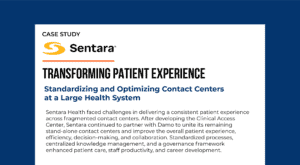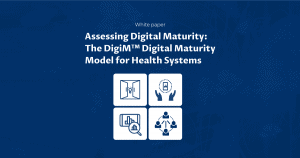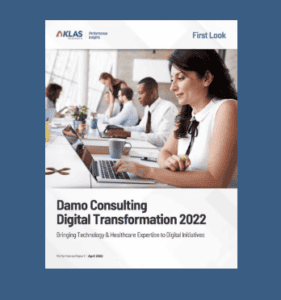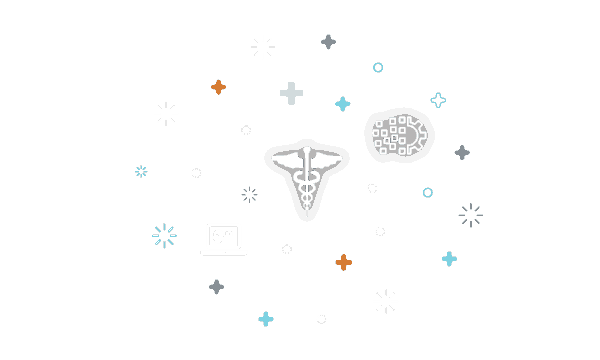AI in Pharma Beyond R&D: Novo Nordisk’s Alicia Abella on Building a Scalable Innovation Model

In a recent episode of The Big Unlock podcast, Alicia Abella, AI Product Lead at Novo Nordisk, joined host Rohit Mahajan to discuss how artificial intelligence is transforming the pharmaceutical industry, especially in the commercialization space. With a career spanning academic research, telecommunications, and big tech, Alicia’s perspective on AI is both technically grounded and strategically visionary.
From pioneering research in natural language processing (NLP) at Columbia University to helping scale AI platforms at Google, Alicia’s journey offers a compelling narrative about AI’s evolution and its emerging potential in healthcare and pharma.
Listen to the full conversation
From Lab to Life Sciences: Alicia’s Full-Circle AI Journey
Alicia’s work in AI began during her PhD at Columbia University in the 1990s, where she built a system to analyze radiographs and automatically generate radiology reports—a precursor to many of today’s AI diagnostic tools. That work led her to AT&T Bell Labs, where she contributed to cutting-edge speech and natural language processing research.
After 25 years at Bell Labs, she transitioned to Google Cloud, where she helped lead global AI strategy and worked on products like Vertex AI and Gemini. Her move to Novo Nordisk was driven by a desire to apply AI in a more purpose-driven setting. “I think pharma is still relatively new to AI, especially in commercialization. A little bit of governance, without being too heavy-handed, can help drive innovation and guide it in the right way for the right problems.”
Unlocking AI Use Cases in Pharma Commercialization
While most pharma AI initiatives have focused on drug discovery and clinical trials, Alicia sees immense opportunity in commercial operations—where AI can streamline processes, accelerate marketing execution, and improve personalization. Some of the most impactful AI use cases at Novo Nordisk include:
Knowledge Search and Retrieval: With massive volumes of data coming from internal reports, market intelligence, and vendor insights, finding relevant information can be overwhelming. Alicia’s team is implementing generative AI solutions with conversational interfaces that make it easy for marketing and insights professionals to extract answers—with references and source links.
AI-Powered Content Creation: Novo Nordisk is also using GenAI to automate ad copy variations, create short video content, and support early-stage creative development—dramatically reducing time-to-market for campaigns.
HCP Segmentation and Outreach: Traditional AI models help the company analyze prescribing behaviors, patient demographics, and treatment patterns—enabling smarter engagement strategies with healthcare providers.
These are real, tangible applications that deliver business impact—and Alicia is keenly focused on productizing only what adds real value.
Driving Cultural Change: The AI Ambassador Program
One of the biggest challenges in deploying AI at scale is change management. Alicia’s approach to this challenge is refreshingly people-first. Early in her tenure, she launched a “listening tour” to engage leaders across the organization and assess the current state of AI awareness and readiness.
She discovered a broad spectrum of sentiment—ranging from excitement to fear—driven by varying levels of understanding and concern around compliance. To address this, she developed the AI Ambassador Program, a grassroots initiative designed to foster peer-led learning and adoption. “In order to drive adoption of any product, you have to make it usable. You have to make the experience something that people will want to use—something intuitive, easy to use, that will drive adoption.”
The program has already exceeded expectations in participation. Ambassadors meet monthly to explore AI use cases, learn about emerging tools, and collaborate on safe experimentation within legal and compliance frameworks. It’s a model that blends top-down strategic intent with bottom-up enthusiasm—and one that Alicia believes can be replicated across industries.
Bringing a Product Mindset to AI Development
Another key differentiator in Alicia’s strategy is her commitment to a product management mindset to guide AI development at Novo Nordisk. Drawing from her experience at Google and AT&T, she’s brought a structured lifecycle approach to AI solution development: design, develop, test, monitor, iterate. Too often, she says, technologists get enamored with the possibilities of AI and rush to build solutions without fully understanding the problem. Her team starts with a foundational question: Should we be building this at all? Alicia adds, “Just because you can build something doesn’t mean you should.”
She emphasizes the need to prioritize AI initiatives only after validating user needs, business value, compliance implications, and technical feasibility does a solution move forward. This governance-light but insight-heavy approach ensures that Novo Nordisk focuses on building AI products that deliver real impact—not just innovation theater.
Partnering with Compliance from Day One
In an industry governed by strict regulations, compliance cannot be an afterthought. Alicia’s approach is to involve legal and data ethics teams early—during ideation, not after development. By building these partnerships proactively, she avoids project delays, ensures alignment with ethical standards, and creates a culture of responsible innovation.
“I told them, ‘You’re going to be my BFFs,’” she said. “I bring them in even when we’re just thinking about an idea—before any development starts. That way, we avoid surprises and ensure we’re building in a compliant manner.”
This early-stage partnership helps place guardrails that manage risk without stifling innovation—a delicate balance that’s essential in highly regulated industries.
Future Trends: LLMs, UX, and Human-AI Symbiosis
When asked about the future of AI, Alicia points to two major areas: user experience and contextual intelligence. “I think a trend that we’re going to see going forward… one of these big tech giants that are now in the business of creating large language models will now have that focus on the user experience.”
Alicia believes the success of ChatGPT wasn’t just about the model’s power—but the simplicity of the interface. As pharma builds its own AI tools, UX must remain a top priority to ensure adoption. But usability alone isn’t enough. She also anticipates a new evolution in AI models and adds that, “It’ll be interesting for how we see these large language models evolving—so that they go beyond just maybe text, image, and video, and start to bring in more contextual knowledge.”
She imagines a future where AI systems can incorporate real-world context and nuance like human collaborators. And the human-AI relationship is something Alicia reflects on deeply and states, “I think we still have that desire to see how do we make these machines behave maybe more like humans—without taking us out of the loop.”
This human-in-the-loop model is especially important in healthcare and pharma, where empathy, nuance, and ethical judgment matter.
A Playbook for Responsible AI in Pharma
Alicia Abella’s work at Novo Nordisk offers an inspiring model for how pharma companies—and other regulated enterprises—can responsibly scale AI. Her leadership showcases the importance of:
- A product-driven, outcome-focused strategy
- Strong compliance and legal collaboration
- Cultural change through education and empowerment
- A relentless focus on usability and trust
As more pharma companies explore AI applications beyond R&D, Alicia’s playbook provides a real-world guide for building AI programs that are credible, compliant, and customer-centric.
A Pediatric-Centric Approach to AI
Pediatric healthcare comes with its own unique challenges—fewer available data points, smaller population sizes, and higher sensitivities around communication and consent. This makes the responsible use of AI even more critical.
Dr. Morse noted that solutions must be designed with children and families in mind, not simply adapted from adult care settings. Whether deploying ambient tools, summarizing clinical notes, or streamlining administrative workflows, every use case must prioritize trust, safety, and patient experience.





